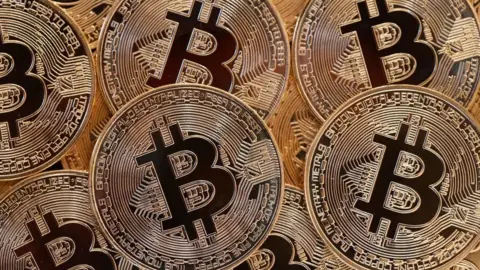News Blast
Your daily dose of the latest headlines and trending topics.
Bitcoin: The Digital Gold Rush You Didn't Know You Were Missing
Discover the hidden opportunities in Bitcoin! Join the digital gold rush and unlock your wealth potential today. Don't miss out!
What is Bitcoin and Why is it Considered the Digital Gold?
Bitcoin is a decentralized digital currency, created in 2009 by an anonymous entity known as Satoshi Nakamoto. Unlike traditional currencies issued by governments (fiat money), Bitcoin operates on a technology known as blockchain, which is a distributed ledger that records all transactions across a network of computers. This innovation allows Bitcoin to function without a central authority, making it resistant to censorship and fraud. Having gained significant traction over the years, it has been widely regarded as a form of 'digital gold' due to its ability to store value and its limited supply of 21 million coins, which helps to prevent inflation.
Many investors consider Bitcoin as digital gold for several reasons:
- It has a finite supply, similar to precious metals like gold, which makes it scarce and potentially valuable over time.
- Bitcoin's market acceptance has steadily increased, as more institutions and individual investors embrace it as a hedge against economic uncertainty.
- It provides a new asset class that is uncorrelated with traditional markets, offering diversification benefits for investors looking to protect their portfolios.

How to Invest in Bitcoin: A Beginner's Guide to the Digital Gold Rush
Investing in Bitcoin can be an exciting journey into the world of digital currencies, often referred to as the 'digital gold.' To get started, it's crucial to understand the basics. First, you need to choose a reliable cryptocurrency exchange. Platforms like Coinbase, Binance, and Kraken are popular choices that offer user-friendly interfaces for beginners. After creating an account, you'll need to fund it, typically through a bank transfer or credit card, to begin your investment.
Once you've funded your account, it’s time to buy your first Bitcoin. You can do this through a market order or a limit order. A market order buys Bitcoin at the current market price, while a limit order allows you to set a price at which you want to acquire the asset. It's also important to keep your Bitcoin secure; consider using a hardware wallet for added safety. Finally, stay informed about the market trends by following resources like CoinDesk and CoinTelegraph to help you make informed decisions.
Is Bitcoin the Future of Currency or Just a Fad?
The debate surrounding Bitcoin as the future of currency or merely a fleeting fad has intensified in recent years. Proponents argue that Bitcoin's decentralized nature and limited supply make it a robust alternative to traditional currencies. For instance, Investopedia notes that Bitcoin operates on a peer-to-peer network, allowing for transactions without the need for intermediaries like banks. This could potentially reduce transaction fees and processing times, making Bitcoin a viable currency option for many individuals and businesses alike.
On the other hand, critics of Bitcoin emphasize its volatility and regulatory challenges. Many fear that it may not be a stable store of value, as seen in its dramatic price fluctuations over the years. According to Forbes, the unpredictable nature of Bitcoin's value raises concerns about its potential as a consistent monetary system. Furthermore, the increasing scrutiny from governments could pose significant barriers to its widespread adoption, leading some to believe that Bitcoin may ultimately prove to be just a fad rather than a lasting innovation in the world of finance.